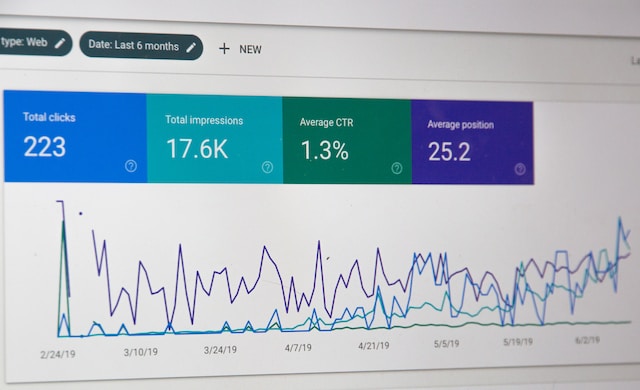Blogging remains a powerful medium for self-expression, sharing knowledge, and building communities. Whether you're an aspiring writer, a business owner, or someone with a passion to share, starting a blog can be a transformative journey.
Blogging remains a
potent tool for self-expression, knowledge sharing, and community building.
Whether you're a budding writer, a business enthusiast, or simply someone with
a passion for communicating ideas, the realm of blogging invites you to unleash
your voice and connect with a global audience.
Accepting the Fundamentals of Blogging
Blogging is a voyage of self-discovery, a platform to offer your unique perspective, and a means of establishing meaningful connections. It is more than just an online presence. Before we get into the specifics of how to begin blogging, let's take a moment to discuss what makes blogging the best form of communication in the digital age. You will be guided through all the necessary procedures to properly begin your blog in 2024 by this detailed guide.
Finding Your Niche
Understanding Your Passion and Expertise
Before diving into the world of blogging, take the time to
reflect on your interests, hobbies, and areas of expertise. What topics do you
find yourself immersed in for hours on end? Identifying your passion will not
only make blogging more enjoyable but will also help you connect with a like-minded
audience.
Market Research
Once you've pinpointed your interests, conduct thorough
market research to identify potential niches within your chosen domain. Explore
existing blogs, analyze their content, and identify gaps or areas where you can
provide a unique perspective. This step is crucial for shaping your blog's
identity and setting it apart from the competition.
Choosing the Right Blogging Platform
WordPress
As of 2024, WordPress remains a leading choice for bloggers
due to its versatility, user-friendly interface, and extensive plugin library.
Whether you're a beginner or an experienced blogger, WordPress provides a
scalable platform that can grow with your needs.
Blogger
Google's Blogger, also known as Blogspot, is a user-friendly
platform perfect for newcomers to blogging. Acquired by Google in 2003, it
offers a simple setup and customization process with various templates available.
Blogger seamlessly integrates with other Google services and
allows easy connectivity to Google accounts, providing convenient management
and access to features like Google Analytics.
With an intuitive interface, Blogger supports multimedia
elements like images and videos, making content creation straightforward. It
also includes basic SEO settings for optimizing posts for search engines.
As a free platform, Blogger is an excellent choice for
beginners, offering an accessible entry into the blogging world. While it may
lack some advanced features, its simplicity and Google integration make it a
popular starting point for aspiring bloggers.
Other Platforms
Consider alternative platforms such as Medium, Substack, or
Ghost, depending on your specific goals. Medium, for instance, is a great
option for those focused on writing, while Substack is designed for
newsletter-style content. Evaluate the features and limitations of each
platform before making a decision.
Setting Up Your Blog
Selecting a memorable and relevant domain name is a crucial
step in establishing your blog's brand. Aim for simplicity, clarity, and a name
that reflects your blog's content. Use domain name generators and ensure the
chosen name is available.
Web Hosting
Choose a reliable web hosting provider to ensure your blog
is accessible and loads quickly. Compare hosting plans, consider customer
reviews, and opt for a provider that offers excellent customer support. Popular
hosting options include Bluehost, SiteGround, and Kinsta.
Invest time in creating an aesthetically pleasing and
user-friendly design. Many blogging platforms offer customizable templates, or
you can hire a web designer if your budget allows. Give priority to a
mobile-friendly design, simple navigation, and a clean layout.
Crafting Quality Content
Content Planning
Develop a content plan to guide your blogging journey.
Outline your topics, create an editorial calendar, and establish a consistent
posting schedule. A well-thought-out plan helps maintain focus and ensures a
steady flow of engaging content.
Writing Engaging Content
Successful blogging starts with creating engaging material.
Focus on providing value to your readers, whether through informative articles,
entertaining stories, or insightful analysis. Prioritize clarity, readability,
and authenticity in your writing.
Visual Elements
Add eye-catching components to your material, such as pictures,
infographics, and videos. High-quality visuals not only make your blog more
attractive but also help convey information more effectively. Utilize tools
like Canva or Adobe Spark for creating eye-catching graphics.
Building a Community
Engaging with Your Audience
Engage your readers in conversation via email, social media,
and comments. Respond promptly, ask for feedback, and create a sense of
community around your blog. Building a loyal audience is key to the long-term
success of your blogging venture.
Networking with Other Bloggers
Connect with fellow bloggers in your niche to expand your
network and gain exposure. Participate in forums, join social media groups, and
attend virtual or local events. Collaboration with other bloggers can lead to
guest posting opportunities, cross-promotion, and valuable insights.
How to Make Money with blogging 2024
Making money from blogging has become increasingly popular
as more people seek ways to earn income online. If you're wondering how to make
money online through blogging, here are some effective strategies to consider:
1. Affiliate Marketing: One of the most common methods bloggers use to earn money is through affiliate marketing. This involves promoting products or services on your blog and earning a commission for every sale made through your unique affiliate link. You can partner with companies in your niche and promote their products or services to your audience.
2. Sponsored Content: Another way to monetize your blog is by publishing sponsored content. Companies may pay you to write blog posts or reviews about their products or services. Ensure that sponsored content aligns with your blog's niche and provides value to your audience. Transparency is crucial; always disclose sponsored content to maintain trust with your readers.
3. Digital Products: Creating and selling digital products is a lucrative way to make money from your blog. You can develop e-books, online courses, templates, or guides related to your blog's niche. Digital products have the advantage of being scalable, allowing you to earn passive income over time.
4. Advertising: Displaying ads on your blog is another way to generate revenue. You can join ad networks like Google AdSense or Media.net, which automatically display relevant ads on your blog based on your content and audience. Alternatively, you can negotiate direct ad placements with companies interested in reaching your audience.
5. Membership Sites: If you have valuable content or resources to offer, consider creating a membership site. Offer premium content, exclusive resources, or community access to members who pay a subscription fee. Membership sites can provide recurring revenue and foster a loyal community of supporters.
6. Freelancing or Consulting: Use your blog as a platform to showcase your expertise and attract clients for freelance work or consulting services. Offer services related to your niche, such as writing, design, coaching, or marketing. Your blog acts as a portfolio, demonstrating your skills and knowledge to potential clients.
7. Selling Physical Products: If you have physical products to sell, consider setting up an online store on your blog. This could include merchandise related to your blog's niche, such as branded apparel, accessories, or specialty products. Manage your online store with e-commerce systems such as Shopify or WooCommerce.
8. Sponsored Events or Workshops: Organize events or
workshops that are relevant to the subject of your blog. Collaborate with
brands or companies to organize events, webinars, or workshops that provide
value to your audience. Charge admission fees or seek sponsorship to monetize
these events.
9. Donations or Tip Jar: If your audience finds value in your content, they may be willing to support you through donations or tip jars. Add a donation button or link to platforms like PayPal or Patreon, allowing your audience to contribute financially to your blog. Express gratitude to donors and offer perks or rewards as incentives.
10. Coaching or Mentoring: If you have expertise in a particular area, offer coaching or mentoring services to your audience. Provide personalized guidance, advice, or support to individuals seeking to achieve their goals. Offer coaching packages or sessions at a fee, leveraging your blog's authority and credibility.
You may successfully monetize your site and make moneyonline by putting these techniques into practice. Try out various approaches to determine which ones are most effective for your site and readership. In order to gradually gain your readers' confidence and loyalty, never forget to put their needs first and stay true to yourself.
READ ALSO TO UNDERSTAND MORE- 15 Best Ad Networks for Bloggers in 2024
SEO Strategies
Keyword Research
Understand the basics of keyword research to optimize your
blog for search engines. Use tools like Google Keyword Planner or SEMrush to
identify relevant keywords in your niche. To increase discoverability,
naturally include these keywords in your article.
On-Page SEO
Optimize your blog posts for on-page SEO by focusing on meta
titles, meta descriptions, headers, and image alt tags. Ensure that your
content is well-structured and easy for search engines to crawl. This will
improve your blog's ranking on search engine results pages.
Backlink Building
Build a network of quality backlinks to boost your blog's
authority. Guest posting on other reputable blogs, participating in forums, and
collaborating with influencers are effective strategies for acquiring valuable
backlinks.
Staying Updated and Adapting
Continuous Learning
The digital landscape is dynamic, and staying updated with
industry trends and changes is essential. Subscribe to relevant newsletters,
follow industry blogs, and participate in webinars or conferences to stay
informed about the latest developments in blogging and content creation.
Analytics and Metrics
Use resources like Google Analytics to evaluate your blog's
performance regularly. Track key metrics such as page views, bounce
rate, and audience demographics. Use these insights to refine your content
strategy and adapt to the evolving needs of your audience.
Overcoming Challenges
Dealing with Writer's Block
Writer's block is a common challenge for bloggers. Overcome
it by taking breaks, seeking inspiration from diverse sources, and establishing
a routine. Don't be afraid to experiment with different writing styles or
formats to reignite your creativity.
Managing Time Effectively
Blogging requires consistent effort, and time management is
crucial. Create a realistic schedule that accommodates your other responsibilities.
Utilize productivity tools, such as Trello or Asana, to organize tasks and
deadlines. Remember, quality content often outweighs quantity.
Handling Criticism and Feedback
Not everyone will agree with your perspective, and that's
okay. Accept constructive criticism as a chance to improve. Respond graciously
to feedback, learn from it, and use it to refine your blogging skills.
Cultivating a resilient mindset will help you navigate the challenges of the
online world.
Legal and Ethical Considerations
Copyright and Plagiarism
Respect intellectual property rights by avoiding plagiarism
and properly attributing sources. Familiarize yourself with copyright laws and
use images, videos, and other content ethically. Consider using royalty-free or
Creative Commons-licensed materials when necessary.
Privacy and Data Protection
Be mindful of privacy and data protection laws, especially
if your blog collects personal information. Clearly outline your privacy policy
and terms of use. Ensure compliance with regulations such as the General Data
Protection Regulation (GDPR) to build trust with your audience.
Disclosures and Transparency
If you engage in affiliate marketing or receive compensation
for sponsored content, adhere to transparency standards. Clearly disclose any
partnerships, sponsored content, or affiliate links within your blog posts.
Honesty fosters trust, and transparency is crucial for maintaining credibility.
Evolving Your Blog
Diversifying Content Formats
As blogging evolves, embrace diverse content formats to keep
your audience engaged. Experiment with podcasts, video content, and interactive
elements. Stay attuned to emerging trends and adapt your content strategy to
meet the changing preferences of your audience.
Social Media Integration
Leverage the power of social media to amplify your blog's
reach. Share your content on platforms like Twitter, Instagram, LinkedIn, and
Pinterest. Tailor your approach to each platform and engage with your audience
through comments, direct messages, and community-building efforts.
Mobile Optimization
With an increasing number of users accessing content on
mobile devices, ensure your blog is optimized for mobile viewing. Responsive
design, fast loading times, and mobile-friendly layouts contribute to a
positive user experience and improve your blog's accessibility.
Conclusion
Finding your niche, choosing the right platform, crafting
quality content, building a community, and staying updated on industry trends
are foundational elements. Overcoming challenges, understanding legal and
ethical considerations, and embracing the evolution of blogging will position
you for sustained growth and impact.
Remember, your blog is a reflection of your unique voice and
perspective. As you share your thoughts, insights, and experiences with the
world, focus on creating meaningful connections with your audience. Stay true
to your vision, adapt to changes, and enjoy the fulfillment that comes with
sharing your passion through the powerful medium of blogging.
Embarking on a blogging journey in 2024 is an exciting
endeavor that requires careful planning, dedication, and continuous learning.
Finding your niche, choosing the right platform, crafting quality content,
building a community, and exploring monetization avenues are key steps in
creating a successful blog. Stay authentic, adapt to changes, and enjoy the
process of unleashing your voice through the powerful medium of blogging.




.jpg)








Comments
Post a Comment